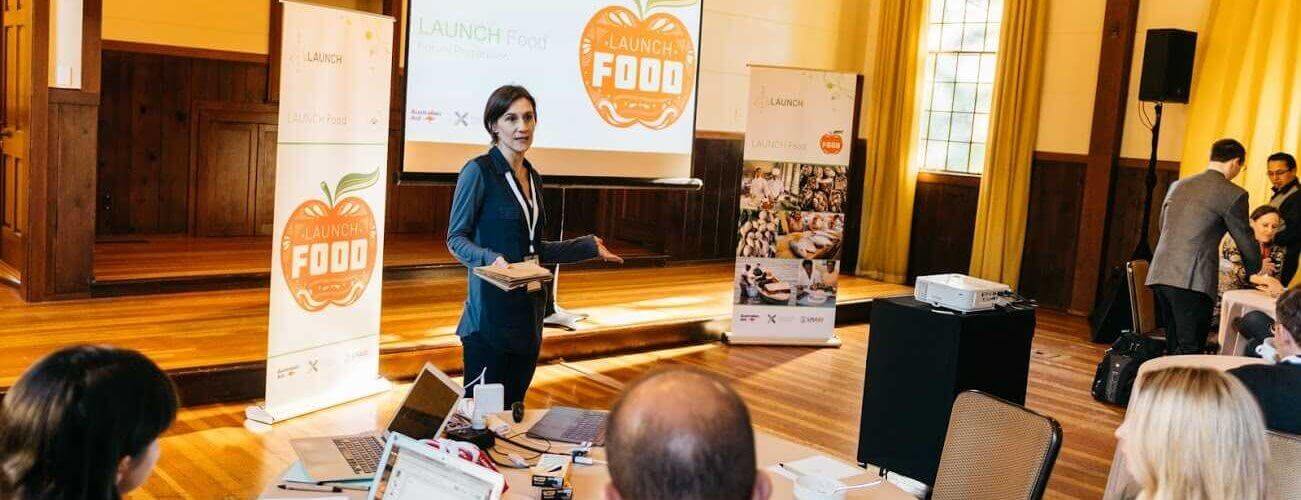The Challenge
Significant changes to the quality and quantity of the world’s food supply over the last few decades are contributing to high levels of malnutrition and poor health outcomes in communities around the world. Changing consumer preferences and shifts in the pricing and accessibility of food have also changed the way people eat, with poor and vulnerable populations particularly affected by malnutrition. Undernutrition now accounts for 11% of the global burden of disease and is considered the number one risk to health worldwide which, according to the 2016 Global Nutrition Report, is creating “a cascade of individual and societal challenges.”
To help address the issue of global malnutrition, the Australian Department of Foreign Aid and Trade (DFAT) partnered with the USAID Global Development Lab and Second Muse’s LAUNCH program to support and scale innovations that improve health outcomes by enabling people to make healthy food choices. From 2016-2017, the LAUNCH Food challenge sought applications from global entrepreneurs, researchers and industry experts, and received over 280 submissions from around the world. With the support of the global LAUNCH network of experts, 11 innovations were selected that either had the potential to address the availability of and access to affordable, nutritious, desirable and sustainable food; and/or that could promote people’s selection and consumption of more nutritious food.
The Opportunity
While many mechanisms exist to select high-performing innovations and distribute funds to winning applications, the evaluation sector continues to grapple with how to measure the value of these ‘challenge’ models. DFAT wanted to understand how well the LAUNCH model sourced and supported innovations in their journey to impact, and to learn from the experience for future iterations of innovation challenges. R4D was appointed by DFAT as a learning partner to support Second Muse in assessing the design and delivery of the program as it was rolled out, using an adaptive learning approach to continually refine the LAUNCH Food theory of change and co-create design tweaks through a series of Learning Checks throughout the evaluation period.
R4D’s matrix approach allowed the team to capitalize on expertise from three practices: Evaluation and Adaptive Learning, Nutrition, and Innovation. The project team was comprised of at least one member from each of these three teams, which allowed us to construct a theory of change and evaluation design grounded in the latest thinking about how to measure success in the areas of nutrition and innovation.
Our Work
R4D joined LAUNCH Food shortly before the 11 innovations were selected for acceleration. Our team first led a kick-off inception workshop with DFAT, USAID and Second Muse to identify the key focus areas for the evaluation, and understand the theory of change behind the program. We then conducted baseline data collection at the forum where innovators first met and presented their innovations to the LAUNCH network of supportive industry experts.
Our first Learning Check gave DFAT, USAID and Second Muse a chance to review the baseline data together, focusing in particular on innovators’ expectations for the acceleration phase of the program. We then conducted mid-line data collection with members of the broader network, innovators, and the program guides who were supporting the innovators on their scaling journeys. This data informed our second Learning Check, which focused on tweaks to be made to the acceleration process to better support the innovators.
Finally, we conducted end-line data collection with the 11 innovators to understand their growth over the course of the program and the value LAUNCH Food added to their innovations. These findings were presented at a closeout workshop with DFAT, USAID and Second Muse where participants collectively reviewed the findings and co-designed improvements to the LAUNCH model, including how innovators are selected, how the LAUNCH network is curated and supported, and how to tailor stakeholder expectations and outcomes for the design of future innovation challenges.
Photo ©Second Muse | LAUNCH














